ICIAM Prizes Recipients and Invited Lecturers
Contents
- 1 2023 ICIAM Prizes: recipients and committees
- 2 Invited Lectures
- 2.1 Prof. Cynthia Dwork
- 2.2 Prof. Youssef Marzouk
- 2.3 Prof. Ingrid Daubechies
- 2.4 Prof. Tamara Kolda
- 2.5 Prof. Kavita Ramanan
- 2.6 Prof. Lior Horesh
- 2.7 Prof. Rachel Ward
- 2.8 Prof. Andrew Stuart
- 2.9 Prof. Jose Antonio Carrillo de la Plata
- 2.10 Prof. Gitta Kutyniok
- 2.11 Prof. Albert Cohen
- 2.12 Prof. Martin Burger
- 2.13 Prof. Francis Bach
- 2.14 Prof. Monique Laurent
- 2.15 Prof. Endre Süli
- 2.16 Prof. Michele Benzi
- 2.17 Prof. Antonin Chambolle
- 2.18 Prof. Xiaoyun Wang
- 2.19 Prof. Lei Guo
- 2.20 Prof. Ichiro Hagiwara
- 2.21 Prof. Yasuaki Hiraoka
- 2.22 Prof. Satoru Iwata
- 2.23 Prof. Gary Froyland
- 2.24 Prof. Alicia Dickenstein
- 2.25 Prof. Mouhamed Moustapha Fall
- 2.26 Prof. Mourad Bellassoued
- 2.27 Prof. Pascal Van Hentenryck
2023 ICIAM Prizes: recipients and committees
The 2023 ICIAM prizes will be awarded at the Opening Ceremony of the International Congress for Industrial and Applied Mathematics, ICIAM 2023, to be held in Tokyo (Japan), on August 20-25, 2023. The Prize Committee was chaired by Ya-xiang Yuan, the President of ICIAM. Other members were:
- Gang Bao (Chair of Maxwell Prize Subcommittee).
- Alfredo Bermudez (Chair of Pioneer Prize Subcommittee).
- Nira Chamberlian (Chair of Industry Prize Subcommittee).
- Leah Edelstein-Keshet (Chair of Lagrange Prize Subcommittee).
- Lois Curfman McInnes (Chair of Su Buchin Prize Subcommittee).
- Kim-Chuan Toh (Chair of Collatz Prize Subcommittee).
ICIAM Collatz Prize
The 2023 ICIAM Collatz Prize is awarded to Maria Colombo (EPFL Lausanne, Switzerland) for her fundamental contributions to the regularity theory and the analysis of singularities in elliptic PDEs, geometric variational problems, transport equations, and incompressible fluid dynamics.
The Collatz Prize was established to provide international recognition to individual scientists under 42 years of age for outstanding work on industrial and applied mathematics. It was created on the initiative of GAMM, and first awarded in 1999. Carrying a cash award of USD 5000, the Collatz Prize is presently funded by GAMM.

Maria Colombo was born in 1989 in Luino, Italy. She received her Bachelor and Master degrees in Mathematics from University of Pisa, and PhD degree from Scuola Normale Superiore of Pisa in 2015. After holding positions at the University of Zurich and ETH Zurich, she joined EPFL Lausanne as an Assistant Professor in 2018, where she is now a Full Professor of Mathematics. Maria Colombo has received several prizes and awards that include the 2022 Peter Lax award, the 2019 Bartolozzi Prize from the Italian Mathematical Union, and the 2015 Michele Cuozzo Prize for her PhD thesis.
Maria Colombo has made substantial contributions to the regularity theory and the analysis of singularities in elliptic PDEs, transport equations, and incompressible fluid dynamics. In particular, she has made significant advances in the understanding of the long-time behavior of solutions to fundamental equations in fluids such as Euler and Navier-Stokes equations. In her joint work with Buckmaster and Vicol, they showed the existence of badly behaved weak solutions of the Navier-Stokes equations which are smooth except for a singular set of times of Hausdorff dimension less than 1. Very recently, her joint work with Albritton and Brue’ constructed for the first time nonunique Leray-Hopf solutions of the forced Navier-Stokes equations. Together with her student Haffter, they also proved that the singular set of Leray-Hopf weak solutions of the supercritical SQG (surface quasi-geostrophic) equation is contained in a compact set in spacetime whose Hausdorff dimension is also estimated. Maria Colombo has several works (with Spolaor, Edelen and Velichkov) on the structure of singularities for solutions to the obstacle problem and minimal surfaces. Their work on the log-epiperimetric inequality in GAFA is a beautiful discovery that has sparked subsequent major developments in the area.
The subcommittee for ICIAM Collatz Prize was:
- Kim-Chuan Toh (National University of Singapore, Singapore), Chair.
- Gregoire Allaire (Ecole Polytechnique, France).
- Ricardo Cortez (Tulane University, USA).
- Hiroshi Suito (Tohoku University, Japan).
ICIAM Lagrange Prize
Awarded to Alfio Quarteroni for his ground-breaking work in finite element and spectral methods, domain decomposition methods, discontinuous Galerkin methods, numerical solution of incompressible Navier-Stokes equations, multiphysics and multiscale modeling – with application to fluid dynamics, geophysics, the human heart and circulatory system, the Covid-19 epidemic, as well as improvement of sports performance for the America’s Cup sailing competition.
The Lagrange Prize was established to provide international recognition to individual mathematicians who have made an exceptional contribution to applied mathematics throughout their careers. It was created on the initiative of SEMA, SIMAI and SMAI and first awarded in 1999. Carrying a cash award of USD 5000, the Lagrange Prize is presently funded by the four member societies SBMAC, SEMA, SIMAI and SMAI.

Alfio Quarteroni became a Full Professor at the Catholic University of Brescia (1986-1989), at the University of Minnesota (Minneapolis, 1990-1992), and at the Ecole Polytechnique Fédérale de Lausanne (1989-2017). He is currently a professor at the Politecnico di Milano (since 1989), where he was the founder and first Director of the Lab for Modeling and Scientific Computing (MOX). Quarteroni was a plenary speaker at the International Congress of Mathematicians (ICM Madrid 2006), at the International Congress for Applied and Industrial Mathematics (ICIAM Hamburg 1995), and at many international conferences all over the world. In 1992, his innovative work in Computational Fluid Dynamics gained a NASA Group Achievement Award. He has also been awarded the Galileo Galilei International Prize for Science (2015), the Feng Kang Prize of the Chinese Academy of Sciences (2013), the Euler medal from ECCOMAS (2022), among many others. He is a fellow of the International Association of Computational Mechanics (2004), the Accademia dei Lincei (2004), the Society for Industrial and Applied Mathematics (SIAM, 2009), the European Academy of Sciences (2010), Academia Europaea (2014), the Lisbon Academy of Sciences (2018), European Community on Computational Methods in Applied Science (ECCOMAS, 2010), and the Swiss Academy of Engineering Sciences (2012).
Alfio Quarteroni has made significant impact on mathematics by developing finite elements and spectral methods, domain decomposition techniques, reduced order methods and their integration with machine learning techniques. His career has been marked by outstanding innovations in numerical methods for partial differential equations, and myriad practical applications, including earthquake simulations, models of the human heart and cardiovascular system, the improvement of sports performance, and industrial applications. His mathematical optimization methods contributed to the winning Swiss team in the America’s cup sailing competition (2003, 2007).
Alfio Quarteroni has a prolific record of over 400 peer-reviewed publications and 26 books, some of which have been translated into many languages. He has trained over 200 young scientists (MSc and PhD). He is well known for his contributions to fostering the applied mathematics community, particularly in Europe.
The subcommittee for the Lagrange prize was:
- Leah Edelstein-Keshet (University of British Columbia, Canada), Chair
- Rosa Donat (University of Valencia, Spain)
- Maurizio Falcone (University of Rome, Italy)
- Irena Lasiecka (University of Memphis, USA)
- Hiroshi Matano (Meiji University, Japan)
- Lloyd N. Trefethen (University of Oxford, UK)
ICIAM Maxwell Prize
Awarded to Weinan E for his seminal contributions to applied mathematics and in particular on analysis and application of machine learning algorithms, multi-scale modeling, the modeling of rare events and stochastic partial differential equations.
The Maxwell Prize was established to provide international recognition to a mathematician who has demonstrated originality in applied mathematics. It was created on the initiative of the IMA (with the support of the James Clerk Maxwell Foundation), and first awarded in 1999. Carrying a cash award of USD 5000, the Maxwell Prize is presently funded by the IMA and by the James Clerk Maxwell Foundation.

Weinan E is the director of the Center for Machine Learning Research at Peking University and professor in the Department of Mathematics and Program in Applied and Computational Mathematics at Princeton University. He obtained his undergraduate degree at the University of Science and Technology of China in 1982, his master’s degree at the Chinese Academy of Sciences in 1985, and his Ph.D. at the University of California, Los Angeles in 1989. Professor E was the recipient of the ICIAM Collatz Prize in 2003, the Peter Henrici Prize of SIAM and ETH in 2019, and the Gordon Bell Prize from ACM in 2020. He has been invited to deliver a plenary lecture at ICM 2022. Professor E was elected fellow of the Institute of Physics in 2005, fellow of SIAM in 2009, member of the Chinese Academy of Sciences in 2011 and fellow of the American Mathematical Society in 2012.
Professor E’s research work draws inspiration from various disciplines of sciences. He has made profound impact in fluid dynamics, chemistry, material sciences, and soft condensed matter physics. He has contributed to the resolution of many long standing scientific problems such as the Burgers turbulence problem, and the Cauchy-Born rule for crystalline solids. A common theme of his work is to bring clarity to scientific issues through mathematics. A second theme is multi-scale and/or multi-physics modeling. He has made fundamental contributions to building the mathematical framework and finding effective numerical algorithms for modeling rare events. He has also made original contributions to multiscale analysis and algorithms through his work on heterogeneous multi-scale methods, multi-scale stochastic simulation algorithms, complex fluids and homogenization problems. In addition, Professor E and collaborators made fundamental contributions to the analysis and numerical algorithms of density functional theory, including studying its continuum limit and developing the PEXSI algorithm. More recently, Professor E pioneered the development of deep learning-based algorithms in scientific computing and computational science. His work on solving high dimensional stochastic control problems using deep learning-based algorithms in 2016 was the first paper on deep learning-based algorithms for high dimensional problems in scientific computing. He and collaborators have developed deep learning-based methodologies in molecular dynamics and quantum mechanics, and he pioneered the dynamical systems and control theory approach to machine learning and maximum principle-based algorithms for deep learning.
The subcommittee for ICIAM Maxwell Prize was:
- Gang Bao (Zhejiang, University,China), Chair
- Wolfgang Dahmen (University of South Carolina, USA)
- Qiang Du (Columbia University, USA)
- Erwan Faou (INRIA and University of Rennes, France)
- Des Higham (University of Edinburgh, UK)
- Amy Novick-Cohen (Technion, Israel)
ICIAM Pioneer Prize
Awarded to Leslie Greengard (Courant Institute, New York University and Flatiron Institute, Simons Foundation) for his pioneering work on fast algorithms including the fast multipole method (one of the top-ten algorithms of the 20th century), fast Gauss transform, and fast direct solvers; and for the development of innovative high-order, automatically adaptive algorithms for differential and integral equations.

Leslie Greengard was born in London, England, but grew up in the United States in New York City, Boston, and New Haven. He holds a B.A. in mathematics from Wesleyan University (1979), an M.D, from the Yale University School of Medicine (1987), and a Ph.D. in computer science from Yale University (1987).
From 2006-2011, Greengard was director of the Courant Institute of Mathematical Sciences, an independent division of the New York University (NYU) and is currently a professor of mathematics and computer science at this prestigious Center. He is also director of the Center for Computational Mathematics at the Flatiron Institute, a division of the Simons Foundation. He formerly served as the director at the Center for Computational Biology in the Flatiron Institute.
Professor Greengard has had a profound impact on computational mathematics. The Fast Multipole Method (FMM), developed together with Vladimir Rokhlin, is one of the top ten algorithms of the 20th century. Its impact has been further enhanced by complementary techniques such as
- Fast Gauss transforms for the rapid computation of Gauss convolution over unstructured point sets;
- Fast algorithms and implementations for three types of non-uniform Fourier transforms;
- Fast direct solvers for non-oscillatory and oscillatory integral equations based on the idea of recursive skeletonization.
These contributions have enabled simulations that would otherwise be completely intractable in áreas such as electromagnetics, acoustics, computational biology, fluid and solid mechanics, heat transfer, quantum mechanics, and biomedical imaging.
Besides its immediate impact for solving fast summation problems that arise directly in computational simulations, the other dramatic impact of the FMM was that it unlocked integral equation formulations as a tool for mathematical modeling of large scale problems. Leslie has spearheaded a decades long effort to extend integral equations techniques to apply to not only elliptic problems, but also parabolic ones like the heat equation, or the Navier-Stokes equations.
Professor Greengard is a prolific writer with more than 120 professional articles. Many of these articles are highly cited and some of his review articles have strongly influenced the field of applied and computational mathematics.
He was an invited speaker for the International Congress of Mathematicians (ICM) in 1998 and an invited speaker for the International Congress on Industrial and Applied Mathematics (ICIAM) in 1999. He gave the prestigious von Neumann Lecture of SIAM in 2014. He has been elected to National Academy of Sciences (USA), National Academy of Engineering (USA), and American Academy of Arts and Sciences.
The subcommittee for ICIAM Pioneer Prize was:
- Alfredo Bermudez (University of Santiago de Compostela, Spain) Chair
- Poul G. Hjorth (Technic University of Denmark, Denmark)
- Narayan Rangaraj (India, IIT Bombay)
- Carola Bibiane Schönlieb (University of Cambridge, UK)
- Jin Keun Seo (Yonsei University, South Korea)
- Joseph Teran (UC Davis, US)
ICIAM Su Buchin Prize
The 2023 ICIAM Su Buchin Prize is awarded to Jose Mario Martinez Perez (University of Campinas, Brazil) for outstanding achievements in research—a combination of theory, practice, software, and applications for solving large-scale optimization problems—and in fostering the development of the optimization and applied mathematics communities in Latin America.
The Su Buchin Prize was established to provide international recognition of an outstanding contribution by an individual in the application of Mathematics to emerging economies and human development, in particular at the economic and cultural level in developing countries. This includes efforts to improve mathematical research and teaching in those countries. Created as an initiative of CSIAM and first awarded in 2007, the prize carries a cash award of USD 5000 and is presently funded by CSIAM.

In 1971, Jose Mario Martinez Perez received his 1st degree in mathematics from the University of Buenos Aires, Argentina. In 1978 he received a Ph.D. in systems engineering and computer sciences from the Federal University of Rio de Janeiro, Brazil. He was a professor at the University of Campinas, Brazil, between 1978 and 2018, transitioning to emeritus professor in 2019. Professor Martinez Perez was awarded the Brazilian National Order of Scientific Merit and is a full member of the Brazilian Academy of Sciences.
Jose Mario Martinez Perez is both an outstanding researcher with numerous contributions to applied mathematics and an exemplary teacher, whose efforts have motivated countless students. He has devoted his career to optimization and numerical analysis, authoring numerous articles that address topics such as augmented Lagrangians, sequential quadratic programming, and trust region methods. His contributions represent remarkable advances for solving large-scale optimization problems through published algorithms and software, along with deep involvement in a wide range of applications.
The work of Jose Mario Martinez Perez has been fundamental in the development of applied mathematics research in Latin America. He has supervised more than 30 master’s students and more than 30 Ph.D. students from various countries in the region, maintaining strong connections over time and promoting collaborations that strengthen the development of research groups in each of those countries. For example, his former students are now professors at universities in Brazil, Argentina, Venezuela, Colombia, and Chile. Also, he has been an important actor in the creation, expansion and consolidation of Sociedade Brasileria de Mathematica Aplicada e Computacional (SBMAC), which was created in 1978. Taken together, Professor Martinez Perez’s achievements in research and in building the optimization and applied mathematics communities in Latin America are an extraordinarily influential body of professional work.
The subcommittee for the ICIAM Su Buchin Prize was:
- Lois Curfman McInnes (Argonne National Laboratory, US), Chair.
- Tanniemola Liverpool (University of Bristol, UK).
- Amiya Kumar Pani (Indian Institute of Technology Bombay, India).
- Precious Sibanda (University of Kwazulu-Natal, South Africa).
- Pingwen Zhang (Peking University, China).
ICIAM Industry Prize 2023
Awarded to Cleve B. Moler for his outstanding contributions to the development of mathematical and computational tools and methods for the solution of science and engineering problems and his invention of MATLAB, which allows industrial users to harness efficient and reliable numerical methods to execute numerical simulations in ever-expanding domains of science and engineering.
The ICIAM Industry Prize was established to provide international recognition to scientists who have made outstanding contributions to innovative mathematical techniques with demonstrated impact in Industry. It was created in 2020 and will be awarded for the first time in 2023. Carrying a cash award of USD 5000, the Industry prize is currently funded by JSIAM.

Cleve B. Moler is the Founder and Chief Mathematician of Math Works, Inc.. He received his B.Sc. degree in Mathematics from California Institute of Technology, in 1961, and his M.S. in 1963 and Ph.D. 1965 in Mathematics from Stanford University. He has received a de Florez Award from AIAA, a John von Neuman Medal from IEEE, a Computer Pioneer Award and a Sidney Fernbach Award from IEEE Computer Society, the SIAM-ACM Prize in Computational Science and Engineering and the SIAM Prize for Distinguished Service to the Profession. He is a Fellow of SIAM and a member of National Academy of Engineering.
In creating MATLAB and co-founding MathWorks, Moler changed the applied mathematics world. MATLAB is a high-level programming environment for scientific and engineering computing that is used worldwide. MATLAB and its associate software Simulink are used in industries including automotive, aerospace, communications, electronics, industrial automation, financial services, and computational biology. According to the MathWorks, there are more than 4 million MATLAB users worldwide. Moler also is one of the authors of the LINPACK and EISPACK scientific subroutine libraries, the original dense linear algebra software libraries. These libraries encapsulated the state-of-the-art numerical algorithms to make them more widely available to scientists and engineers who needed to solve the linear systems and eigenvalue problems ubiquitous in science and engineering without requiring them to become experts in the algorithms or software
Moler is an outstanding mathematician. In his abbreviated career in academia, he advised students who took the field to the next level: Charlie Van Loan, Jack Dongarra, Alan Cline, Stan Eisenstat and others. His contributions include a fundamental algorithm, the QZ algorithm (jointly invented with Pete Stewart), for reduction of a matrix to Hessenberg form as a necessary first step in computing the eigenpairs for the generalized eigenproblem Ax = λBx.
The subcommittee for ICIAM Industry Prize was
- Nira Chamberlain (Institute of Mathematics and its Application, UK), Chair
- Jose A. Cuminato (University of Sao Paulo, Brazil)
- Irene Fonseca (Carnegie Mellon University, USA)
- Volker Mehrmann (Technische Universitat Berlin, Germany)
- Giovanni Russo (University of Catania, Italy)
- Kazue Sako (Waseda University, Japan)
Invited Lectures
Prof. Cynthia Dwork
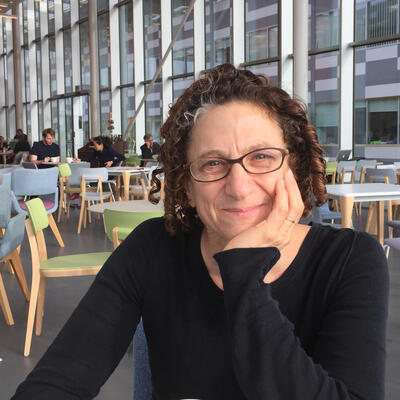
Cynthia Dwork, Gordon McKay Professor of Computer Science at Harvard, Affiliated Faculty at Harvard Law School and Department of Statistics, and Distinguished Scientist at Microsoft, is renowned for placing privacy-preserving data analysis on a mathematically rigorous foundation. She has also made seminal contributions in algorithmic fairness, cryptography, and distributed computing. Her current focus is on the theory of algorithmic fairness. Dwork is the recipient of numerous awards including the IEEE Hamming Medal, the Goedel Prize, the Knuth Prize, and the ACM Paris Kanellakis Theory and Practice Award. She is a member of the US National Academy of Sciences and the US National Academy of Engineering, and is a Fellow of the American Academy of Arts and Sciences and the American Philosophical Society.
Prof. Youssef Marzouk
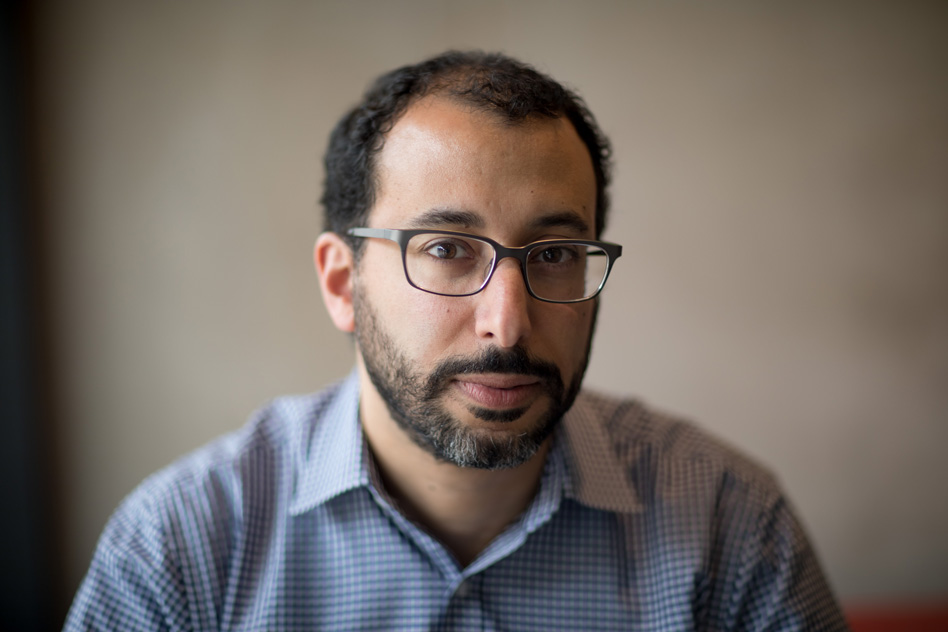
Youssef Marzouk is a Professor in the Department of Aeronautics and Astronautics at the Massachusetts Institute of Technology (MIT), and co-director of the MIT Center for Computational Science and Engineering, within the Schwarzman College of Computing. He is also a core member of MIT’s Statistics and Data Science Center.
His research interests lie at the intersection of statistical inference, computational mathematics, and physical modeling. He has developed new methodologies for uncertainty quantification, Bayesian computation, and machine learning in complex physical systems, motivated by a broad range of engineering and science applications. In the past decade, his main research contributions have centered on algorithms for inference, with applications to data assimilation and inverse problems; dimension reduction methodologies for high-dimensional learning and surrogate modeling; optimal experimental design; and transportation of measure as a tool for both inference and stochastic modeling.
He received his SB, SM, and PhD degrees from MIT and spent four years at Sandia National Laboratories before joining the MIT faculty in 2009. He is also an avid coffee drinker and occasional classical pianist.
Prof. Ingrid Daubechies
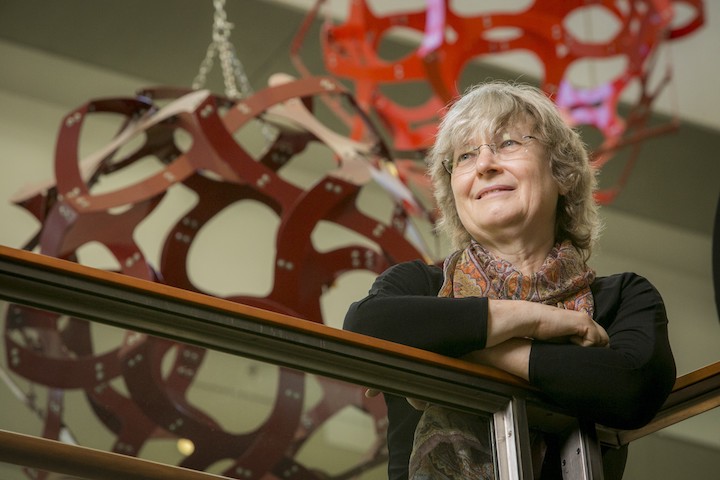
Ingrid Daubechies earned her Ph.D. in theoretical physics from Vrije Universiteit Brussel. She currently holds the title of James B. Duke Professor of Mathematics and Electrical
and Computer Engineering at Duke University. Although her degree is in (theoretical) physics, she thought she would become an engineer while growing up. Her mother was heartbroken when she opted for pure science instead, and predicted Ingrid would end up in the gutter, jobless. Fortunately, matters turned out better. Her academic work focuses on mathematical methods for the analysis of signals, images and data, with applications in many directions. She enjoys working in collaboration with others, in her scientific work as well as otherwise. Her latest collaboration is a Simons Foundation/Duke University funded art project https://mathemalchemy.org/.
Prof. Tamara Kolda
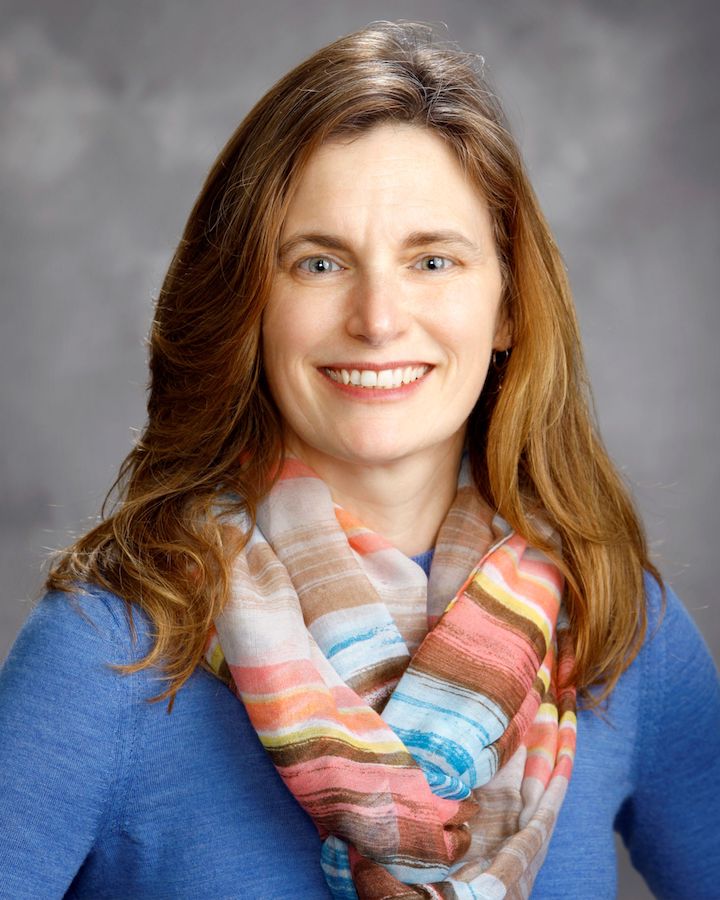
Tamara G. Kolda is an independent mathematical consultant under the auspices of her company MathSci.ai based in California. She is also a Distinguished Visiting Professor in the Department of Industrial Engineering & Management Science at Northwestern University in Evanston, Illinois. From 1999-2021, she was a researcher at Sandia National Laboratories in Livermore, California. She specializes in mathematical algorithms and computation methods for tensor decompositions, tensor eigenvalues, graph algorithms, randomized algorithms, machine learning, network science, numerical optimization, and distributed and parallel computing. She is serves as the founding editor-in-chief for the SIAM Journal on Mathematics of Data Science (SIMODS) and as the Chair of the Illustrating the Impact of the Mathematical Sciences study for the U.S. National Academies. She is a member of the National Academy of Engineering (NAE), Fellow of the Society for Industrial and Applied Mathematics (SIAM), and Fellow of the Association for Computing Machinery (ACM).
Prof. Kavita Ramanan
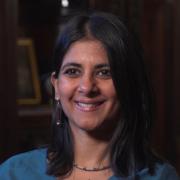
Kavita Ramanan is the Roland George Dwight Richardson University Professor and Associate Chair at the Division of Applied Mathematics, Brown University. Her research interests lie in the area of probability theory and stochastic processes, including high-dimensional probability, interacting particle systems, large deviations, stochastic control and applications to asymptotic convex geometry and stochastic networks. Her research has received recognition in the form of an invited lecture at the International Congress of Mathematicians, a Clay Senior Scholarship, Vannevar Bush Faculty Fellowship, a Guggenheim Fellowship, the Newton Award from the Department of Defense (DoD), a Simons Fellowship, and the Erlang Prize from the INFORMS Applied Probability Society. She is an elected fellow of multiple societies including the AAAS, AMS, IMS, INFORMS and SIAM, and is an elected member of the American Academy of Arts and Sciences. She also initiated the SEAM (Social Equity and Applied Math) seminar series, runs a math outreach group called the Math CoOp, and organizes the Mathematics-Sin-Fronteras lecture series.
Prof. Lior Horesh
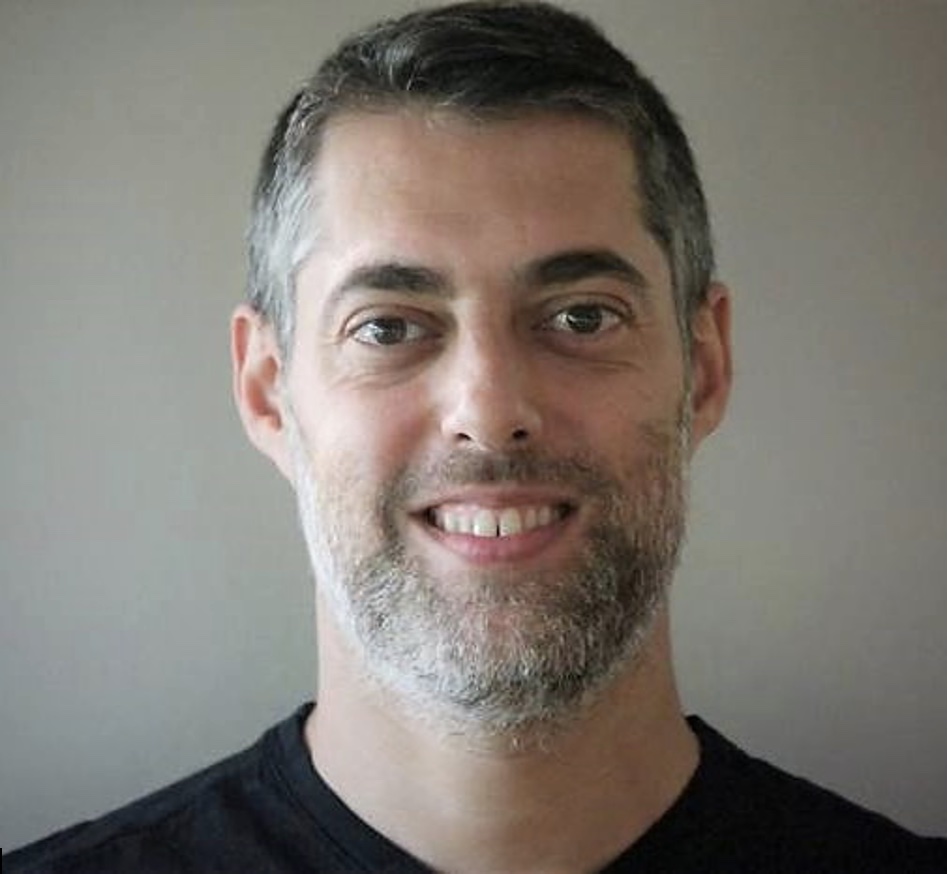
Dr. Lior Horesh is a Principal Research Staff Member, Master Inventor, and a Senior Manager of the Mathematics of AI group at IBM Research. His group’s mission is to approach some of the big challenges the field of AI is facing, from a principled mathematical angle. This involves both conceiving and bringing in state-of-the-art mathematical theories, algorithms, and analysis tools, in hope of fundamentally advancing generalizability, functionality, scalability and interpretability of AI. Additionally, Dr. Horesh holds an adjunct Associate Professor position at the Computer Science department of Columbia University where he teaches graduate level Advanced Machine Learning and Quantum Computing theory courses. Dr. Horesh Received his Ph.D. in 2006 from UCL and joined IBM in 2009. Dr. Horesh’s research work focuses on algorithmic and theoretical aspects of tensor algebra, numerical analysis, simulation of complex systems, inverse problems, non-linear optimization, experimental design, machine learning, quantum computing and the interplay between first principles models and statistical AI in the context of symbolic scientific discovery.
Prof. Rachel Ward
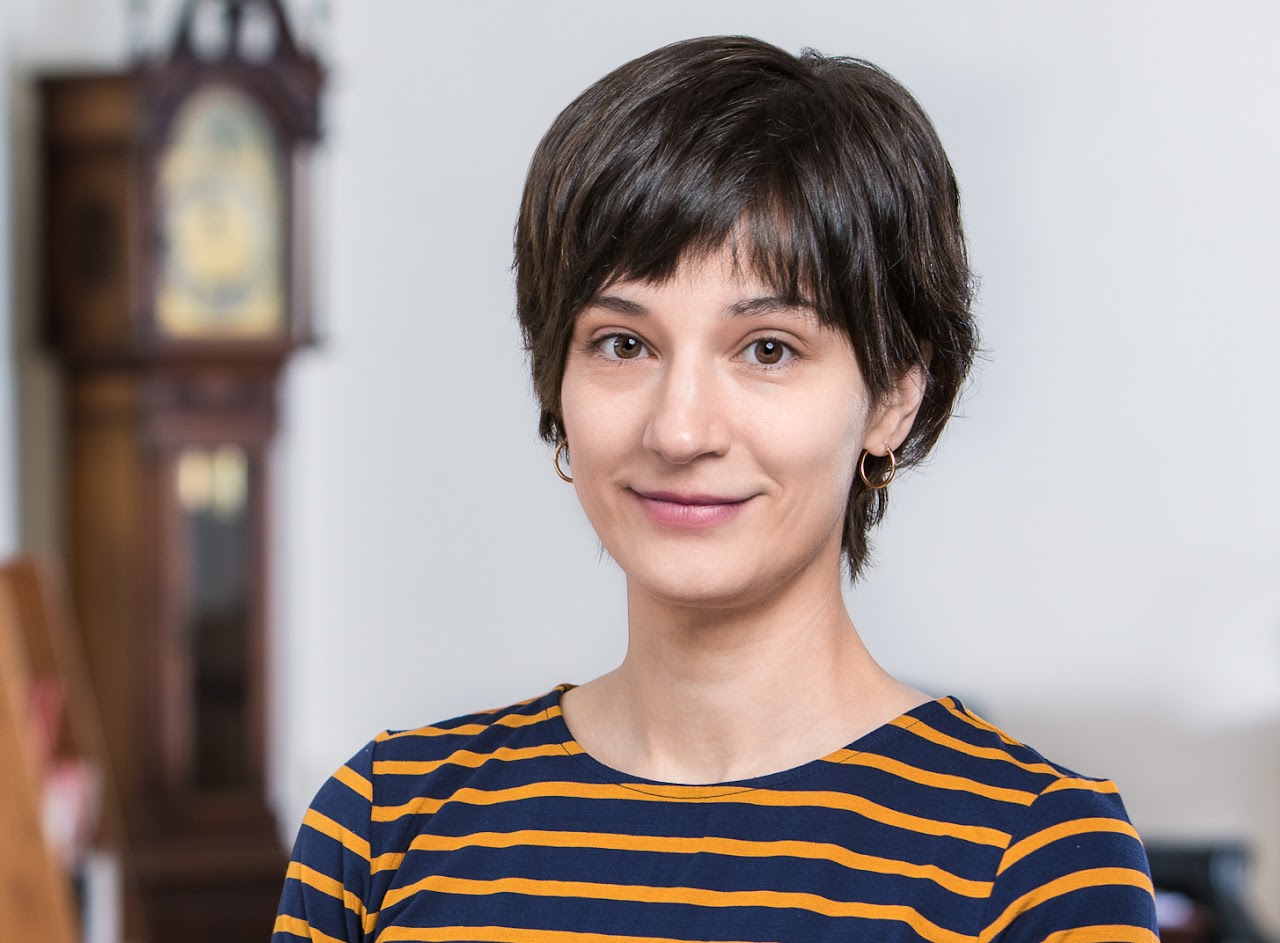
Rachel Ward is the W.A. “Tex” Moncrief Distinguished Professor in Computational Engineering and Sciences — Data Science and Professor of Mathematics at UT Austin. She is recognized for her contributions to stochastic gradient descent, compressive sensing, and randomized linear embeddings. From 2017-2018, Dr. Ward was a visiting researcher at Facebook AI Research. Prior to joining UT Austin in 2011, Dr. Ward received the PhD in Computational and Applied Mathematics at Princeton in 2009 and was a Courant Instructor at the Courant Institute, NYU, from 2009-2011. Among her awards are the Sloan research fellowship, NSF CAREER award, 2016 IMA prize in mathematics and its applications, 2020 Simons fellowship in mathematics. She is also an invited speaker at the 2022 International Congress of Mathematicians.
Prof. Andrew Stuart
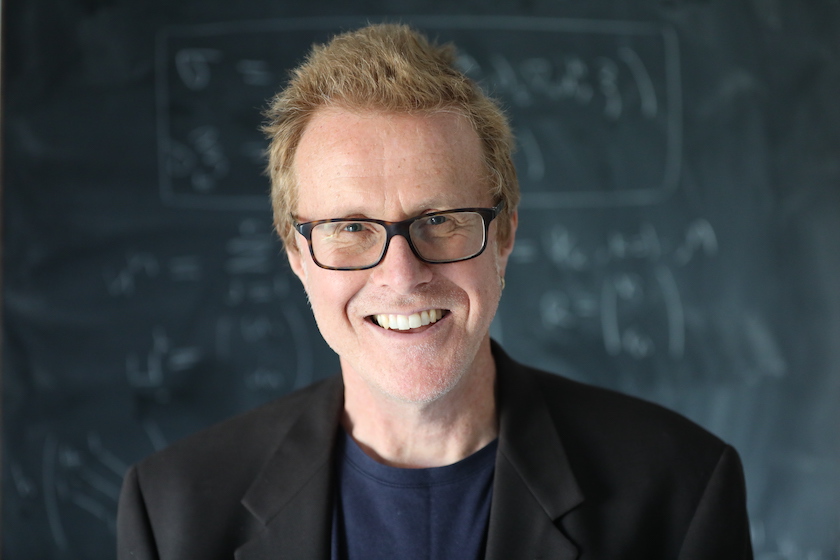
Andrew Stuart works in applied and computational mathematics, and is interested in particular in the question of how to optimally combine predictive models with data. He joined Caltech in 2016 as Bren Professor of Computing and Mathematical Sciences, after 17 years as Professor of Mathematics at the University of Warwick (1999–2016). Prior to that he was a tenured professor in The Departments of Computer Science and Mechanical Engineering at Stanford University (1992–1999), and a lecturer in the Mathematics Department at Bath University (1989–1992). He obtained his PhD from the Oxford University Computing Laboratory in 1986, and held postdoctoral positions in Mathematics at Oxford University and at MIT in the period 1986–1989. He was elected a Fellow of The Royal Society in 2020, and was selected as a US Department of Defense Vannevar Bush Faculty Fellow in 2022.
Prof. Jose Antonio Carrillo de la Plata
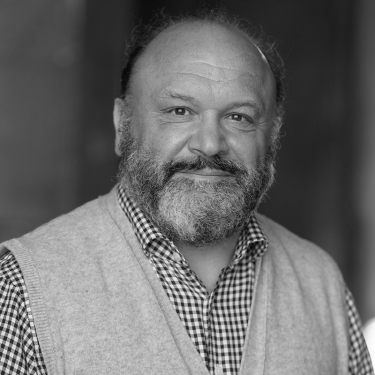
José A. Carrillo is currently Professor of the Analysis of Nonlinear Partial Differential Equations at the Mathematical Institute and Tutorial Fellow in Applied Mathematics at The Queen’s College, University of Oxford associated to the OxPDE and WCMB groups. He was previously Chair in Applied and Numerical Analysis at Imperial College London from October 2012 till March 2020 and ICREA Research Professor at the Universitat Autònoma de Barcelona during the period 2003-2012. He was a lecturer at the University of Texas at Austin 1998-2000; and held assistant and associate professor positions at the Universidad de Granada 1992-1998 and 2000-2003, where he also did his PhD. He works on kinetic equations and nonlinear nonlocal diffusion equations. He has contributed to the theoretical and numerical analysis of PDEs, and their simulation in different applications such as granular media, semiconductors and lately in collective behaviour. His main scholarship contributions in analysis of PDEs are in aggregation-diffusion problems, i.e. nonlinear Fokker-Planck type equations; the use of optimal transport techniques and entropy methods to analyse theoretically and numerically gradient-flow structures for PDEs and their singularities; the analysis of kinetic models for self-organization, and their implications in mathematical biology, control engineering and global optimization. He has also developed numerical schemes for nonlinear aggregation-diffusions and gradient flows preserving the free energy decay property and thus the equilibrium measures and is lately interested in extending these properties to phase transitions. His interests in mathematical biology include the understanding of cell sorting by differential adhesion and synchronization phenomena in neuroscience.
He served as chair of the Applied Mathematics Committee of the European Mathematical Society 2014-2017. He was the chair of the 2018 Year of Mathematical Biology. He was the Program Director of the SIAM activity group in Analysis of PDE 2019-2020. He is vice-president of the European Society for Mathematical and Theoretical Biology 2021-2023; and member of the Scientific Committee of the Spanish National Science Agency 2021-2024. He was elected as member of the European Academy of Sciences, Section Mathematics in 2018, SIAM Fellow Class 2019, Fellow of the Institute of Mathematics and its Applications, and Foreign Member of the Royal Academy of Sciences of Spain since 2021. He is currently the head of the Division of the European Academy of Sciences, Section Mathematics. He was recognised with the SEMA prize (2003) and the GAMM Richard Von-Mises prize (2006) for young researchers, a Wolfson Research Merit Award by the Royal Society 2012-2017, and the 2016 SACA award for best PhD supervision at Imperial College London. He has been Highly Cited Researcher in 2015, 2016, 2017, 2018, 2019, and 2020 by Web of Science. He has been awarded an ERC Advanced Grant 2019 to pursue his investigations in complex particle dynamics: phase transitions, patterns, and synchronization.
Prof. Gitta Kutyniok
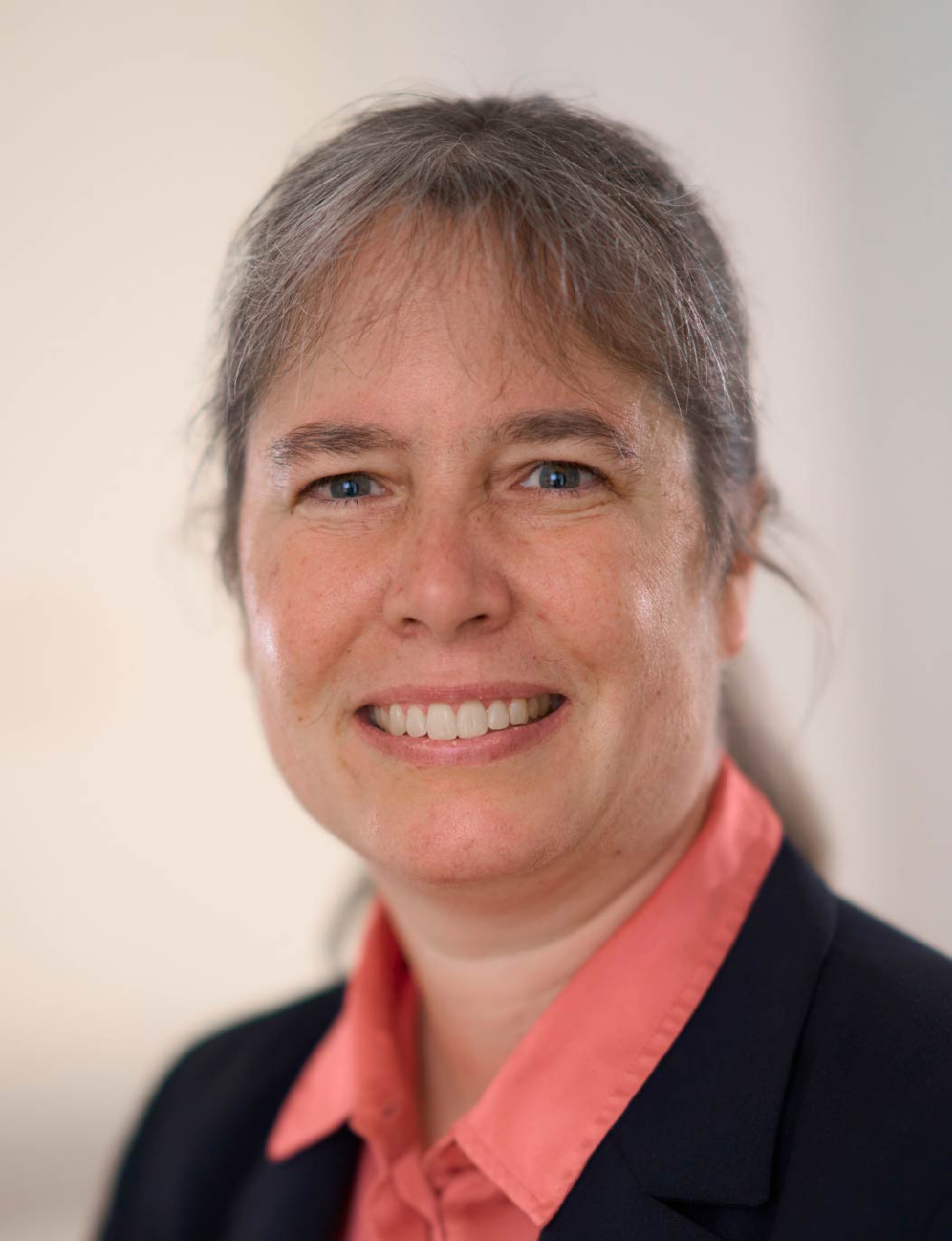
Gitta Kutyniok currently holds a Bavarian AI Chair for Mathematical Foundations of Artificial Intelligence at the Ludwig-Maximilians Universität München. She received her Diploma in Mathematics and Computer Science as well as her Ph.D. degree from the Universität Paderborn in Germany, and her Habilitation in Mathematics in 2006 at the Justus-Liebig Universität Gießen. From 2001 to 2008 she held visiting positions at several US institutions, including Princeton University, Stanford University, Yale University, Georgia Institute of Technology, and Washington University in St. Louis, and was a Nachdiplomslecturer at ETH Zurich in 2014. In 2008, she became a full professor of mathematics at the Universität Osnabrück, and moved to Berlin three years later, where she held an Einstein Chair in the Institute of Mathematics at the Technische Universität Berlin and a courtesy appointment in the Department of Computer Science and Engineering until 2020. In addition, Gitta Kutyniok holds an Adjunct Professorship in Machine Learning at the University of Tromso since 2019.
Gitta Kutyniok has received various awards for her research such as an award from the Universität Paderborn in 2003, the Research Prize of the Justus-Liebig Universität Gießen and a Heisenberg-Fellowship in 2006, and the von Kaven Prize by the DFG in 2007. She was invited as the Noether Lecturer at the ÖMG-DMV Congress in 2013, a plenary lecturer at the 8th European Congress of Mathematics (8ECM) in 2021, the lecturer of the London Mathematical Society (LMS) Invited Lecture Series in 2022, and an invited lecturer at the International Congress of Mathematicians 2022 (ICM 2022). Moreover, she became a member of the Berlin-Brandenburg Academy of Sciences and Humanities in 2017, a SIAM Fellow in 2019, and a member of the European Academy of Sciences in 2022. In addition, she was honored by a Francqui Chair of the Belgian Francqui Foundation in 2020. She was Chair of the SIAM Activity Group on Imaging Sciences from 2018-2019 and Vice Chair of the new SIAM Activity Group on Data Science in 2021, and currently serves as Vice President-at-Large of SIAM. She is also the spokesperson of the Research Focus “Next Generation AI” at the Center for Advanced Studies at LMU, and serves as LMU-Director of the Konrad Zuse School of Excellence in Reliable AI.
Gitta Kutyniok’s research work covers, in particular, the areas of
applied and computational harmonic analysis, artificial intelligence,
compressed sensing, deep learning, imaging sciences, inverse problems,
and applications to life sciences, robotics, and telecommunication.
Prof. Albert Cohen
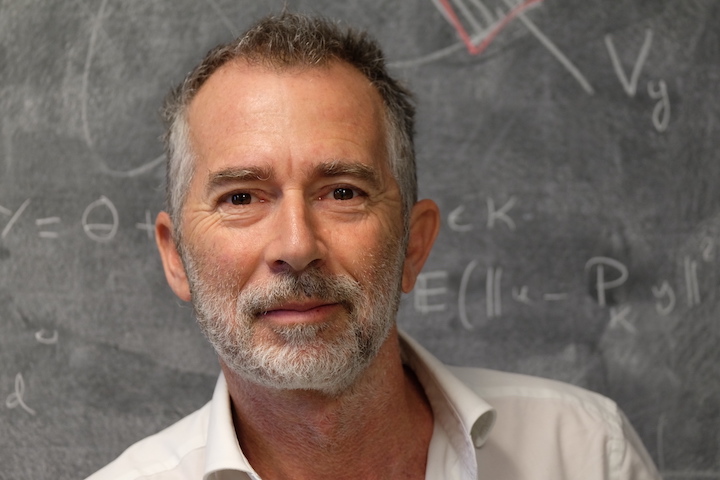
Albert Cohen is a professor at Sorbonne Université, Paris, France, since 1995.
His early research works (from his PhD of 1990, supervised by Yves Meyer, until 1998) were concerned with the development of the theory of wavelet bases in relation with algorithms used in signal and image processing, or in computer aided geometric design. One significant achievement was the derivation, together with Ingrid Daubechies and Jean-Christophe Feauveau, of biorthogonal wavelet bases which are used in the state of the art image compression standard JPEG 2000.
Since 1998, his research oriented towards various applicative directions, with as a common denominator its theoretical foundations in nonlinear approximation theory and harmonic analysis. In particular, it has led to the development and analysis of adaptive and sparsity-based numerical methods in various application contexts such as (i) data compression, (ii) statistical estimation and learning theory or (iii) discretizations of partial differential equations.
Albert Cohen is often joining forces with his colleagues Wolfgang Dahmen and Ronald DeVore. Some of their most significant results are concerned with the analysis of adaptive methods for PDE’s, the space BV, greedy algorithms, and statistical learning theory. A topic of particular interest the present time is high-dimensional approximation problems arising in learning theory and in the numerical treatment of parametric and stochastic PDE’s.
His current research is in particular concerned with problems that involve a very large number of variables, and whose efficient numerical treatment is therefore challenged by the so-called curse of dimensionality, meaning that computational complexity increases exponentially in the variable dimension. Such problems are ubiquitous in an increasing number of applicative areas, among which statistical or active learning theory, parametric and stochastic partial differential equations, parameter optimization in numerical codes, with a high demand from the industrial world of efficient numerical methods.
Central scientific objectives in this context are (i) to identify fundamental mathematical principles behind overcoming the curse of dimensionality, (ii) to understand how these principles enter in relevant instances of the applications described above, and, (iii) based on these principles to develop broadly applicable concrete adaptive numerical strategies that benefit from such mechanisms.
Albert Cohen’s research has been supported by the Advanced ERC grant BREAD (Breaking the Curse of Dimensionality in Analysis and Simulation) awarded in 2014. He has been a junior and senior member of the Institut Universitaire de France, and he is a member of the European Academy of Sciences.
Prof. Martin Burger
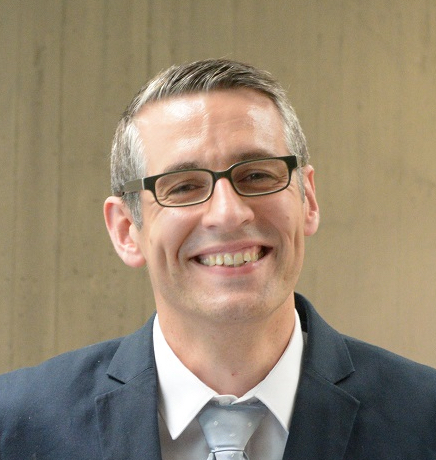
Martin Burger is a Professor of Applied Mathematics at the Department of Mathematics, Friedrich-Alexander University Erlangen-Nürnberg. His interests include nonlinear partial differential equations, inverse problems, and variational techniques in imaging. In particular, he is known for the development and mathematical analysis of nonlinear regularization methods for inverse and imaging methods. His further interests include the development of mathematical models in life and social sciences, which together drive interdisciplinary research developments, e.g., in biomedical imaging. Martin Burger has received several awards and honors for his scientific contributions, such as the Calderon prize for distinguished contributions in the field of inverse problems.
He serves on editorial boards of several journals and is one of the editors-in-chief of the European Journal of Applied Mathematics.
Prof. Francis Bach
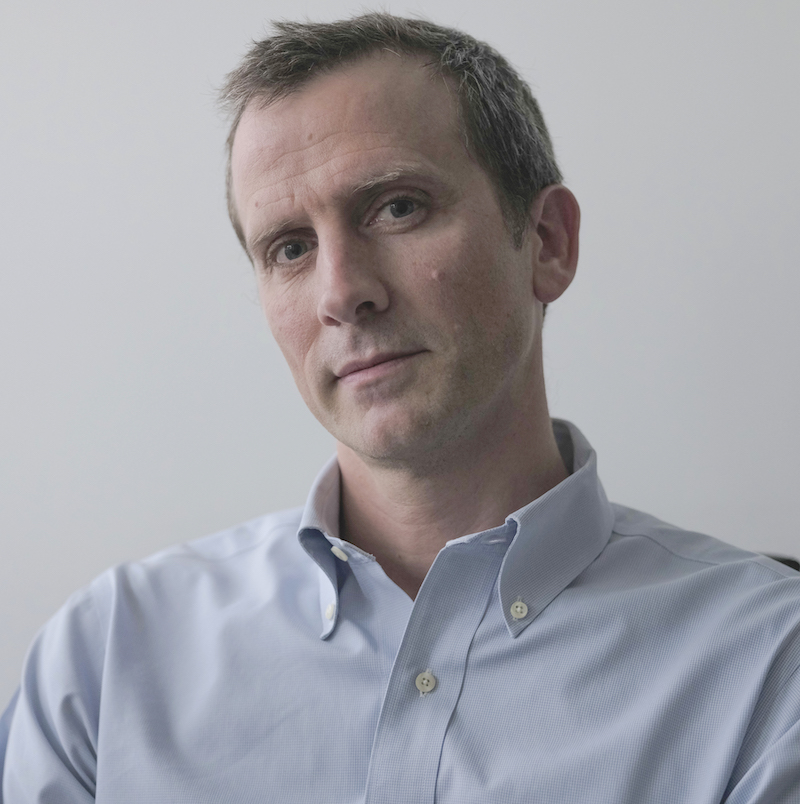
Francis Bach is a researcher at Inria, leading since 2011 the machine learning team which is part of the Computer Science department at Ecole Normale Supérieure. He graduated from Ecole Polytechnique in 1997 and completed his Ph.D. in Computer Science at U.C. Berkeley in 2005, working with Professor Michael Jordan. He spent two years in the Mathematical Morphology group at Ecole des Mines de Paris, then he joined the computer vision project-team at Inria/Ecole Normale Supérieure from 2007 to 2010. Francis Bach is primarily interested in machine learning, and especially in sparse methods, kernel-based learning, large-scale optimization, computer vision and signal processing. He obtained in 2009 a Starting Grant and in 2016 a Consolidator Grant from the European Research Council, and received the Inria young researcher prize in 2012, the ICML test-of-time award in 2014 and 2019, as well as the Lagrange prize in continuous optimization in 2018, and the Jean-Jacques Moreau prize in 2019. He was elected in 2020 at the French Academy of Sciences. In 2015, he was program co-chair of the International Conference in Machine learning (ICML), and general chair in 2018; he is now co-editor-in-chief of the Journal of Machine Learning Research.
Prof. Monique Laurent
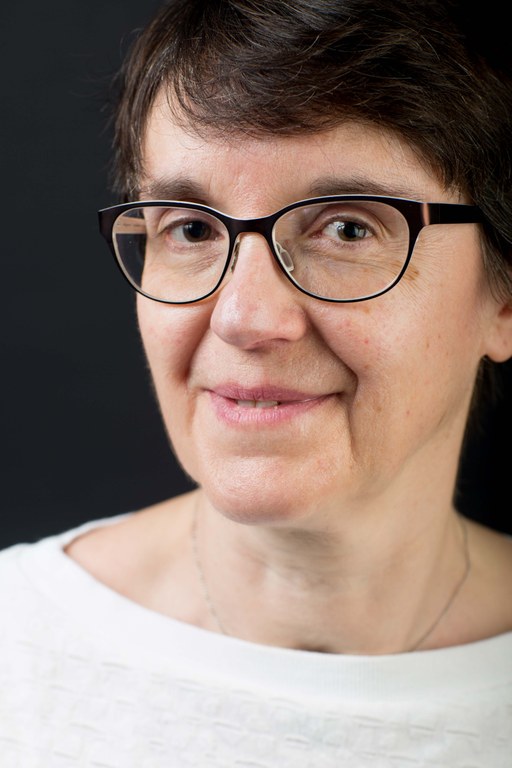
Monique Laurent is senior researcher at Centrum Wiskunde & Informatica (CWI), the national research institute for mathematics and computer science in the Netherlands, and she holds a part-time full professorship at Tilburg University. She received her Ph.D. in Mathematics at the University Paris Diderot in 1986 and was a CNRS researcher in Paris, before joining CWI in 1997.
Her research work is in the areas of discrete mathematics, optimization and convex geometry. In recent years her research focuses on algebraic and geometric methods for the design of efficient algorithms for hard optimization problems arising in operations research, discrete and polynomial optimization, and quantum information.
She became a SIAM Fellow in 2017, a member of the Royal Netherlands Academy of Arts and Sciences (KNAW) in 2018, a member of the Royal Holland Society of Sciences and Humanities (KHMW) in 2019, and a EUROPT Fellow in 2021. Other distinctions include being an invited speaker at the 2014 International Congress of Mathematicians, and giving plenary lectures at FOCM 2017, ISMP 2018 and ILAS 2022. She currently serves on the editorial boards of Mathematical Programming and SIAM Journal on Mathematics of Data Science, and previously of SIAM Journal on Discrete Mathematics, SIAM Journal on Optimization, and Mathematics of Operations Research.
Prof. Endre Süli
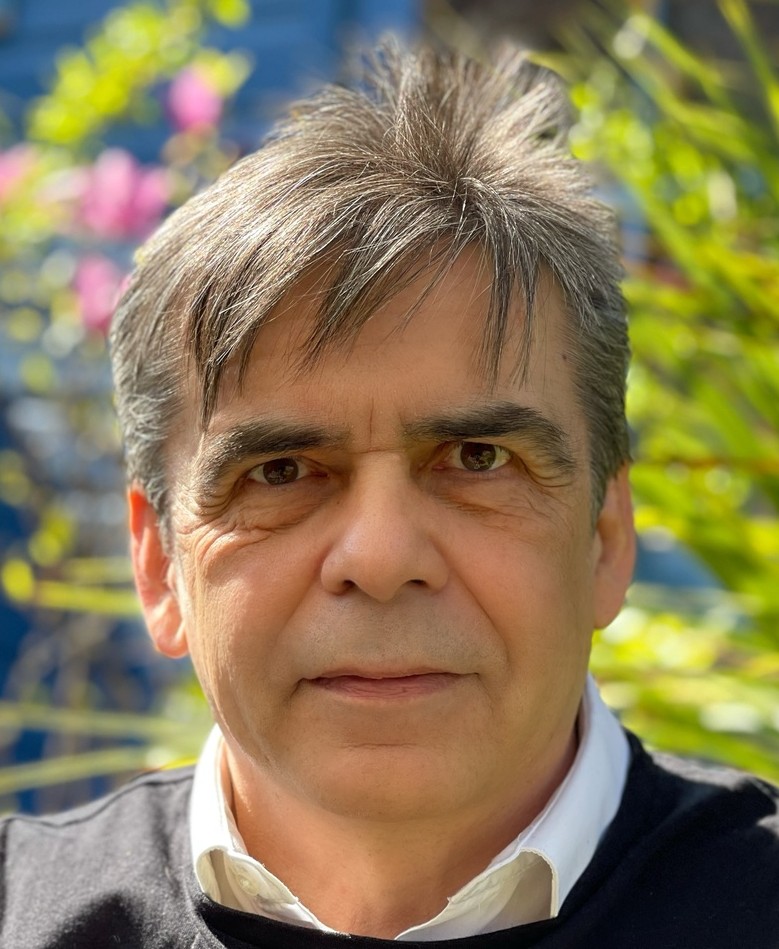
The work of Endre Süli is concerned with the analysis of numerical algorithms for the approximate solution of partial differential equations and the mathematical analysis of nonlinear partial differential equations in continuum mechanics.
Born in Yugoslavia in 1956, he was educated at the University of Belgrade and did his graduate work as a British Council Scholar at the University of Reading and at St Catherine’s College, Oxford. He received his doctorate in mathematics from the University of Belgrade in 1985, and in the same year he was appointed to a faculty position at the University of Oxford, where he is a Professor of Numerical Analysis and a Fellow of Worcester College.
He was elected a Foreign Member of the Serbian Academy of Sciences and Arts (2009), a Member of the European Academy of Sciences (2010), a Fellow of the Society of Industrial and Applied Mathematics (2016), a Member of the Academia Europaea (2020), and a Fellow of the Royal Society (2021).
His other honours include: Chair, Society for the Foundations of Computational Mathematics (SFoCM, 2002–2005), Invited Speaker at the International Congress of Mathematicians (ICM 2006, Madrid), Fellow of the Institute of Mathematics and its Applications (FIMA, 2007), Charlemagne Distinguished Lecture, Aachen (2011), IMA Service Award (2011), Professor Hospitus Universitatis Carolinae Pragensis, Charles University in Prague (2012–), Distinguished Visiting Chair Professor, Shanghai Jiao Tong University (2013), President, SIAM United Kingdom and Republic of Ireland Section (2013–2015), London Mathematical Society/New Zealand Mathematical Society Forder Lecturer (2015), Aziz Lecture, University of Maryland (2015), BIMOS Distinguished Lecture, Berlin (2016), John von Neumann Lecture, Münster (2016), Sibe Mardešić Lecture, Zagreb (2018), and London Mathematical Society Naylor Prize and Lectureship (2021).
Prof. Michele Benzi
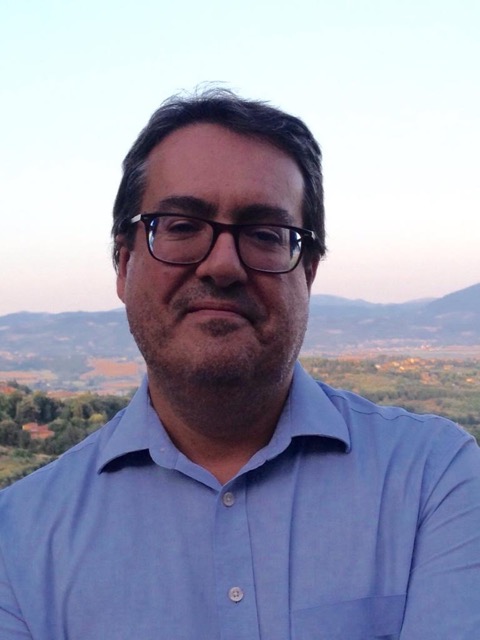
Michele Benzi was born and raised in Bologna, Italy, where he attended the local university, graduating in Mathematics with honors in 1987. He received a PhD degree in Applied Mathematics in 1993 from North Carolina State University. After holding positions at the University of Bologna, at CERFACS in Toulouse (France) and at Los Alamos National Laboratory, in 2000 he joined the faculty of Emory University in Atlanta. He was promoted to full professor in 2006, and in 2012 he was named the Samuel Candler Dobbs Professor of Mathematics and Computer Science. In 2018 he returned to Italy as Professor of Numerical Analysis at the Scuola Normale Superiore in Pisa. He is the author or co-author of over 130 publications and has supervised 15 PhD students and post-docs. Michele Benzi serves, or has served, on the editorial board of 20 scientific journals, and is currently the Editor-in-Chief of SIAM Journal on Matrix Analysis and Applications. He is the recipient of several awards, including the SIAM Outstanding Paper Prize (2001, joint with M. Tuma). His research has been supported by the US National Science Foundation, the US Department of Energy, and the Italian Ministry of University and Research.
Michele Benzi is a SIAM Fellow (2012), a Fellow of the American Mathematical Society (2018), and a member of Academia Europaea (2019).
Prof. Antonin Chambolle
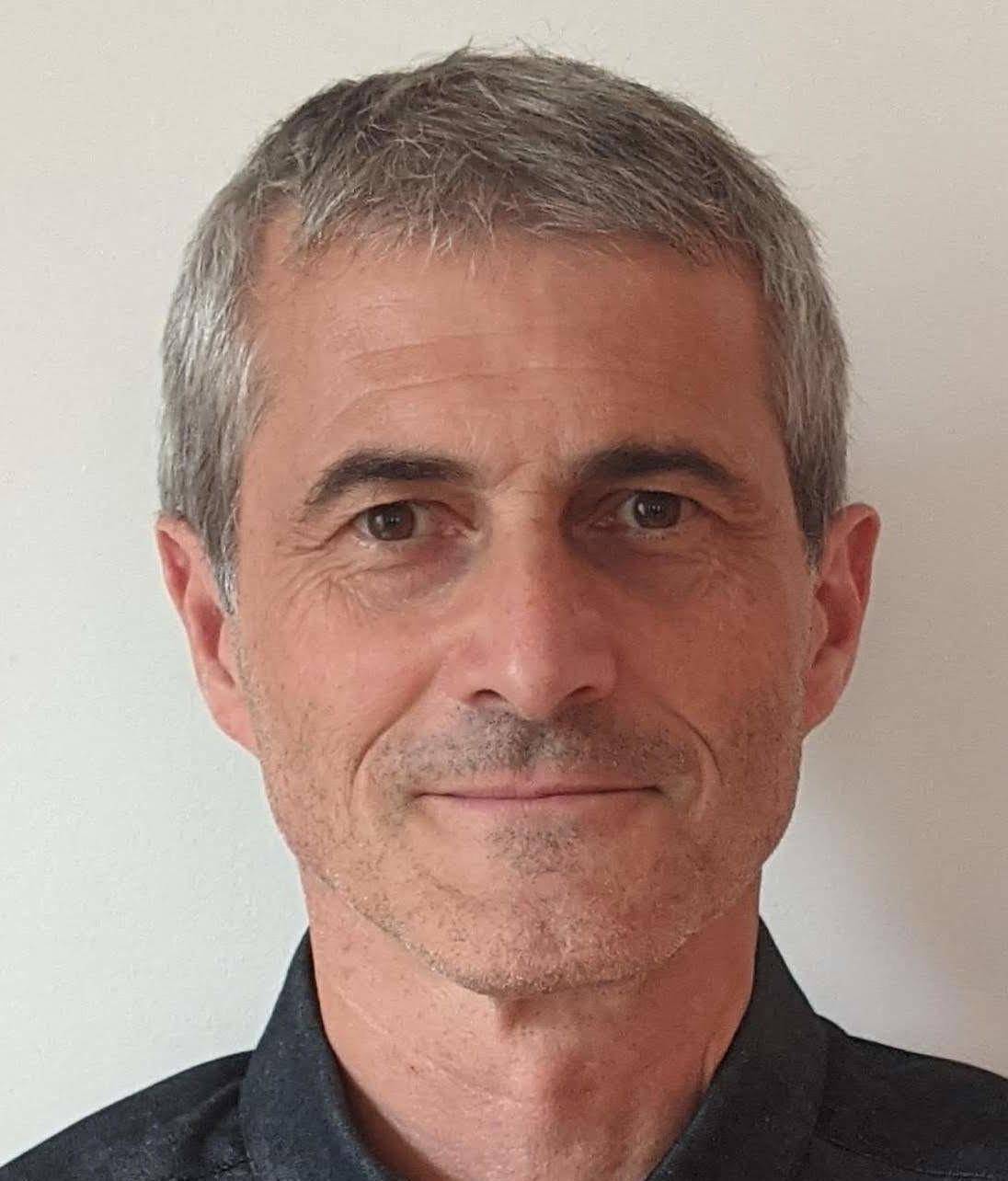
Antonin Chambolle is currently a CNRS senior research scientist working at CEREMADE, the applied mathematics department of Université Paris-Dauphine in Paris, France. Prior, he held a similar position in applied mathematics at CMAP, Ecole Polytechnique, Palaiseau, with also a teaching position. His interests is in mathematical methods for the studies of discontinuities, singularities and geometric variational problems, for applications ranging from image reconstruction, data analysis, to elasticity problems with fractures and materials science. His work addresses theoretical issues, such as the existence of a crystalline mean curvature flow or of minimizers of linearized elasticity energies with fracture terms, numerical issues such as the discretization of singular functionals (total variation, Mumford-Shah) and algorithmic and computational issues. He is the co-authors of several works in mathematical programming developing efficient algorithms for non-smooth convex optimization and was awarded the “Michel Monpetit-INRIA” prize by the French Academy of Science in 2021.
He studied at Ecole Normale Supérieure in Paris and then obtained a PhD from Université Paris-Dauphine in 1993, under the supervision of Prof. Jean-Michel Morel. He also spent some time in SISSA, Trieste, Italy, in the group of Prof. Gianni Dal Maso. Later, he was “French Government Fellow” at Churchill College, Cambridge (UK) in 2015-16, working with the Cambridge Image Analysis at DAMTP.
Prof. Xiaoyun Wang
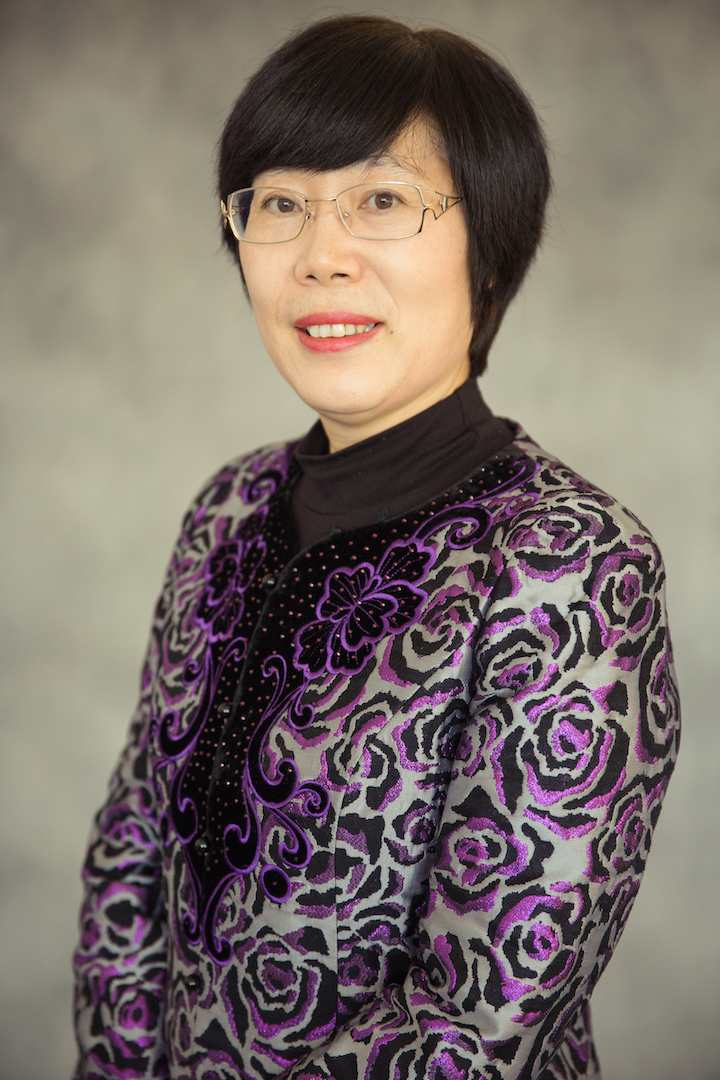
Xiaoyun Wang is a mathematician and cryptographer. She is a C. N. Yang Professor in Institute for Advanced Study, Tsinghua University, the Academician of Chinese Academy of Sciences and the International Association for Cryptologic Research (IACR) fellow. Xiaoyun Wang is well-known for her research on hash functions. Hash functions are the key technique of many cryptographic applications such as digital signatures, integrity verifications, password validations and blockchains. A hash function generates a short digest (digital fingerprint) of the input message. Collision-resistance is one of three security properties of cryptographic hash functions (the others are preimage resistance and second-preimage resistance). Xiaoyun Wang developed the bit-based cryptanalysis theory, and gave the collision attack on five dedicated hash functions including widely deployed MD5 and SHA-1. In response to SHA-1 attack, the US National Institute for Standards and Technology (NIST) recommended the replacement of SHA-1 by SHA-2 hash function family and announced a 5-year project to design the new hash function standard SHA-3. She was in charge of designing SM3 cryptographic hash function, as the Chinese standard, which has been deployed widely in financial, transportation, state grid and other important economic fields in China. In October 2018, SM3 officially became one of the ISO/IEC standards of new generation hash functions. She also analysed some cryptographic primitives with keys, including message authentication codes, symmetric ciphers and authenticated encryption schemes, and achieved very important results on HMAC-MD5, MD5-MAC, SIMON, Keccak-MAC, etc. Since 2006, she has been focusing on post-quantum public-key cryptography, and gave innovative results in lattice-based cryptography, including a two-level heuristic sieve algorithm for general lattices and the design of practical lattice-based algorithms with tight security.
Prof. Lei Guo
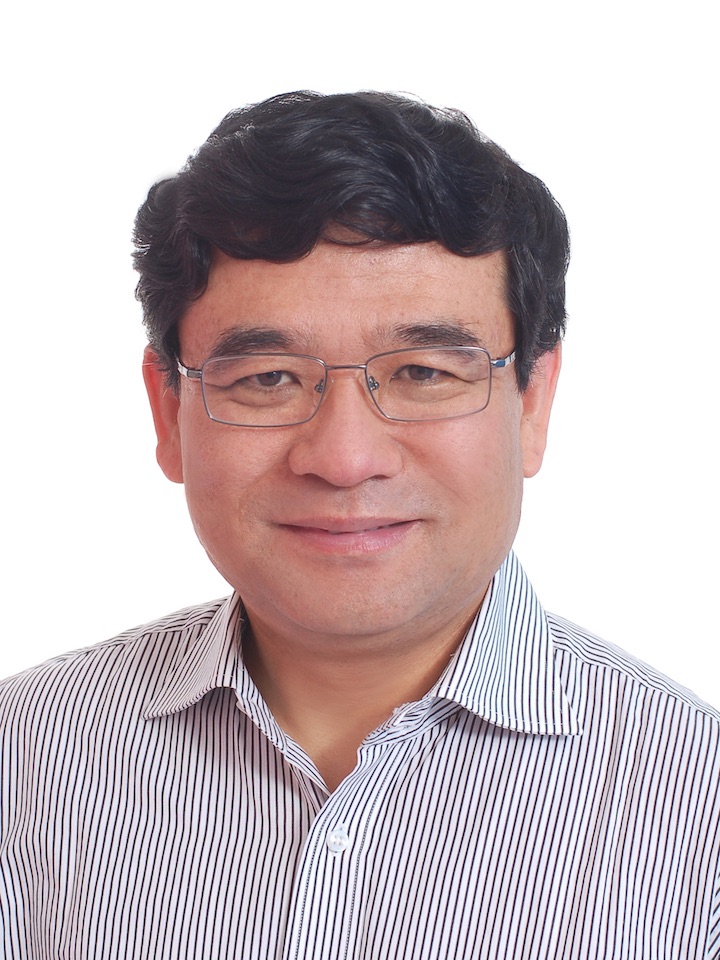
Lei GUO received his B.S. degree in mathematics from Shandong University in 1982 and a Ph.D. degree in control theory from the Chinese Academy of Sciences (CAS) in 1987. He was a postdoctoral fellow at the Australian National University from 1987 to1989 and became a Professor of the Institute of Systems Science at CAS in 1992. From 2002 to 2012, he was the President of the Academy of Mathematics and Systems Science at CAS. He has been the Director of the National Center for Mathematics and Interdisciplinary Sciences at CAS since 2010.
Dr. Guo is a Fellow of IEEE, Member of CAS, Fellow of the Academy of Sciences for the Developing World (TWAS), Foreign Member of the Royal Swedish Academy of Engineering Sciences, and Fellow of the International Federation of Automatic Control (IFAC). He received the 1993 IFAC World Congress Young Author Prize, the IFAC Outstanding Service Award, and an honorary doctorate from the Royal Institute of Technology (KTH), Sweden. He delivered plenary lectures at the triennial IFAC World Congress twice, in 1999 and 2014, and an invited lecture at the International Congress of Mathematicians (ICM) in 2002. In 2019, he was awarded the Hendrik W. Bode Lecture Prize by the IEEE Control Systems Society “for fundamental and practical contributions to the field of adaptive control, system identification, adaptive signal processing, stochastic systems, and applied mathematics” in France, where he delivered the Bode Prize Lecture at the 58th IEEE Conference on Decision and Control.
He formerly served as Council Member of IFAC (2005-2011), General Co-Chair of the 48th IEEE Conference on Decision and Control (CDC’2009), Congress Director of the 8th International Congress on Industrial and Applied Mathematics (ICIAM’2015), and President of the China Society for Industrial and Applied Mathematics (CSIAM, 2008-2016). He has also served as a member of editorial boards of several professional journals including SIAM J. Control and Optimization.
His research interests include stochastic systems, adaptive control, system identification, adaptive filtering, machine learning, control of nonlinear and uncertain dynamical systems, maximum feedback capability, multi-agent systems, and game-based control systems.
Prof. Ichiro Hagiwara
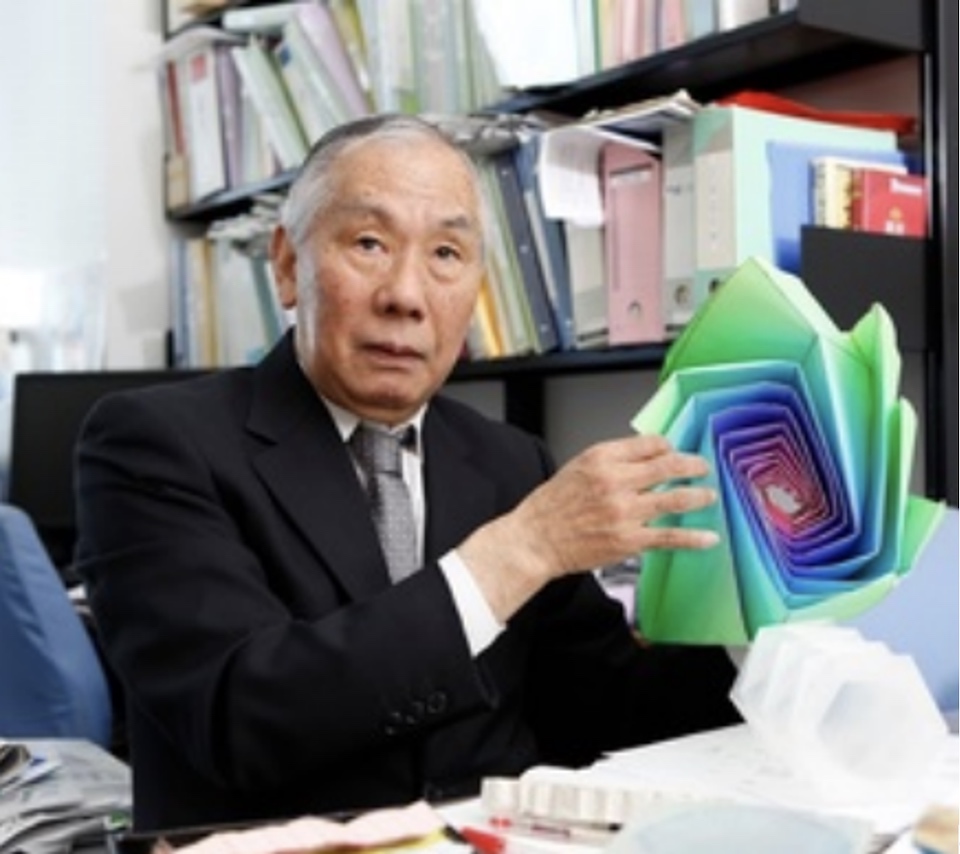
Ichiro HAGIWARA Distinguished Professor Emeritus, Dr. Eng. ASME Fellow, Research and Intellectual Property Strategic Organization, Meiji Institute for Advanced Study of Mathematical Sciences(MIMS),
Meiji University’s Institute of Autonomous Driving(MIAD), Emeritus Professor of Tokyo Institute of Technology, Member of Science Council of Japan(SCJ).
He received his BS and MS Degrees in applied mathematical engineering from Kyoto University in 1970 and 1972. Also he received his PhD in mechanical engineering from the University of Tokyo in 1990. He worked as a researcher at the research center of Nissan Motor Co., Ltd. from April of 1972 to March of 1996. He worked as a professor Department of Mechanical Sciences and Engineering, Graduate School of Science and Engineering, Tokyo Institute of Technology(TIT)from April 1st in 1996 to 31st of March in 2012. And since april 1st, he has worked in Meiji University, Second Director, Institute for Advanced Study of Mathematical Sciences(MIMS), Professor, Organization for the Strategic Coordination of Research and Intellectual Property (Emeritus Professor of Tokyo Institute of Technology). He is now engaged in MIMS and MIAD(Meiji university’s Institute of Autonomous Driving) as a Meiji University distinguished professor emeritus. He is an honorary member of JSIAM(Japan Society for Industrial and Applied Mathematics), JSME(Japan Society of Mechanical Engineers),JSST(Japan Society for Simulation Technology) and JACM(Japan Association for Computational Mechanics). He is a fellow member of ASME (American Society of Mechanical Engineers), JSAE(Society of Automotive Engineers of Japan) and ASIAIM(Asia Simulation Association). He served as a consulting professor at Harbin Institute of Technology, P.R.Ckina. He also served as a guest professor & a consulting professor of The State Key Laboratory of Vibration, shock & Noise of Shanghai Jiao Tong University, P.R.China. And he served as a Foreign communication member of the academic committee of the state key laboratory of automotive safety and energy of Tsinghua University, P.R.China, an honorary professor of School of Mechanical Engineering on Jianjin University, P.R.China and an additional professor of Huazhong University of Science and Technology and an additional professor of Nanjing university of information & technology, P.R.China. He is also a member of Science Council of Japan(SCJ) since March of 2006. He received numerous awards from several academic societies at home and abroad for his various types of researches for computational mechanics, sound and vibration, machine learning, control and origami engineering. He also received Minister of Education, Culture, Sports, Science and Technology Award for his computational mechanics aided origami engineering. He is now interested in both of origami engineering and intelligent self-driving car.
His title for the invited lecture in ICIAM 2023 is “Mathematical sciences for realization of origami engineering aided land / sea / air self-driving car with intelligence”. The lecture will consist of origami engineering, machine learning, optimal control and control of plural eigenfrequencies. In origami engineering, it will be shown the most splendid Japanese Kirigami honeycomb which receives very much attention because it is the best treasure trove to produce metamaterials. As far as machine learning, it will be shown his own technology FQHNN(Fuzzy Quantification method aided Holographic Neural Network) which has causal information unlike CNN(Convolutional Neural Network) which leads the third generation of machine learning. And in optimal control, it will be shown also his own method which is only one real-time optimal control method. The so-called optimal control is not used in the real car because Pontryagin’s maximum principle gives the nonlinear equation which cannot be solved in real time. He has noticed the analogy of the new optimal control theory and the nature of the solution of parabolic equations for the first time and this has contributed to pass this problem. As far as control of plural eigenfrequencies, it is very difficult to be applied the conventional topology optimization. He has developed a new high speed and high accuracy topology change method for ride quality improvement and elimination of anxiety due to the absence of the driver in the self-driving car from observations of strain and dynamic energy distributions of each eigen frequency mode. He is mobilizing with his lab members all of these technologies to successfully create an origami engineering aided land / sea / air self-driving car with intelligence. Here he will discuss the mathematical backbones for these techniques which successfully develop the dream land / sea / air self-driving car with intelligence.
Prof. Yasuaki Hiraoka
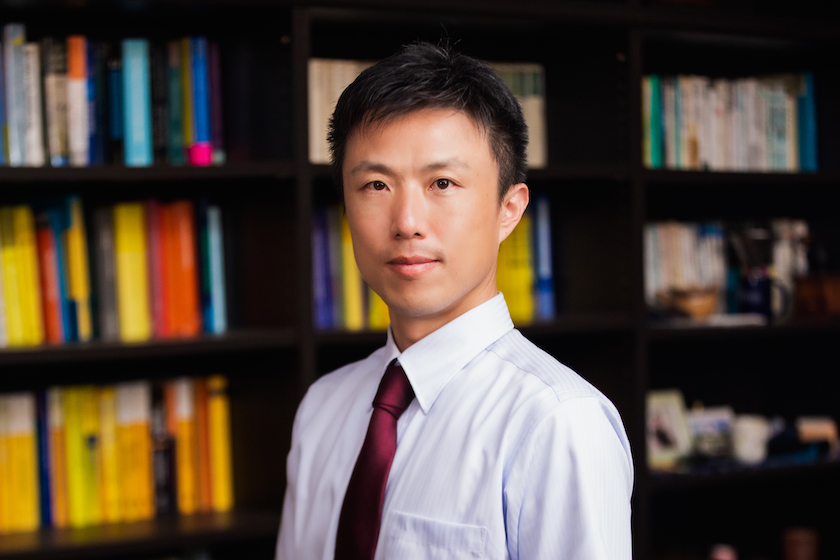
Yasuaki Hiraoka is a mathematician in the area of topological data analysis (TDA). He studies mathematical theory and algorithms of TDA, and also works on applying them into scientific and engineering problems. His primary interest is to develop descriptors for characterizing shape of complex and big data. By combining various mathematical theories such as topology, representation, and probability, he succeeded in making TDA powerful and general for practical problems. In applications, he has organized the materials TDA group, and his group achieved several pioneering results on structural analysis in materials science based on TDA. In particular, a series of methods developed by his group using persistent homology, machine learning, and inverse analysis are expected to be a key technology for materials informatics in future. In addition to materials science, he has recently launched TDA projects for other application areas such as life science.
Prof. Satoru Iwata
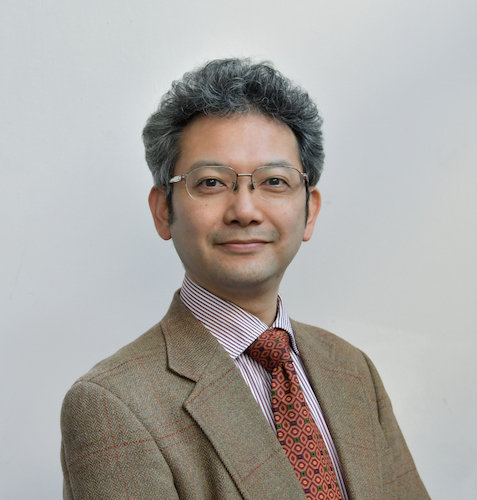
Satoru Iwata is a Professor at Department of Mathematical Informatics, University of Tokyo. He received his M.E. degree from University of Tokyo in 1993 and PhD degree from Kyoto University in 1996. His current research interests include combinatorial optimization, global optimization, and their applications to scientific computing. He shared the Delbert Ray Fulkerson Prize in 2003 for his joint work on submodular function minimization. He was also an invited speaker at the 2010 International Congress of Mathematicians. He currently serves on the editorial boards of Mathematical Programming, Mathematics of Operations Research, and SIAM Journal on Discrete Mathematics. Since 2020, he has been a Principal Investigator at Institute for Chemical Reaction Design and Discovery (ICReDD), Hokkaido University, where he works on applications of optimization and machine learning methods to chemo-informatics and computational chemistry.
Prof. Gary Froyland
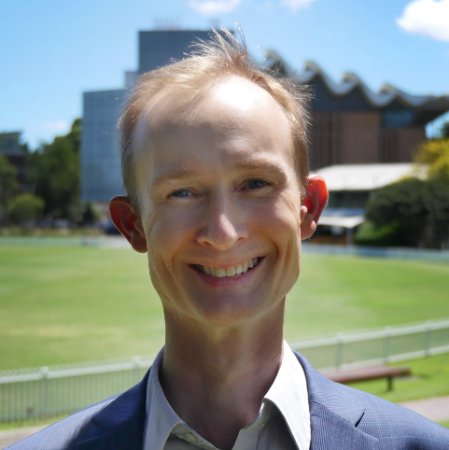
Gary Froyland is Professor of Mathematics at UNSW Sydney; his fields of research cover dynamical systems and optimization. Prior to joining UNSW in 2004, he was a research scientist at BHP Billiton, where he was awarded their 2004 Innovation Prize. His dynamical systems research often focuses on ergodic-theoretic, functional-analytic, or differential-geometric aspects of dynamics, and frequently aims to answer scientific questions arising from fluid dynamics, physical oceanography, or atmospheric science. His discrete optimization research has found application to open-pit mine planning, port scheduling, and cancer radiotherapy.
He is an Einstein Visiting Fellow (2022-2024) at the Free University Berlin and is a past John von Neumann Visiting Professor at TU Munich and Visiting Scholar through the Initiative d’Excellence de l’université de Bordeaux. He is a member of the Australian Research Council’s College of Experts, an Australian Research Council Laureate Fellow (2023-2028), and a former Deputy Director of the Australian Mathematical Sciences Institute. He has given invited addresses at the 2016 SIAM Annual Meeting, the 2017 SIAM Conference on Applications of Dynamical Systems, and the 2020 SIAM Conference on Mathematics for Planet Earth. He is a SIAM Fellow and a Fellow of the Australian Academy of Science.
Prof. Alicia Dickenstein
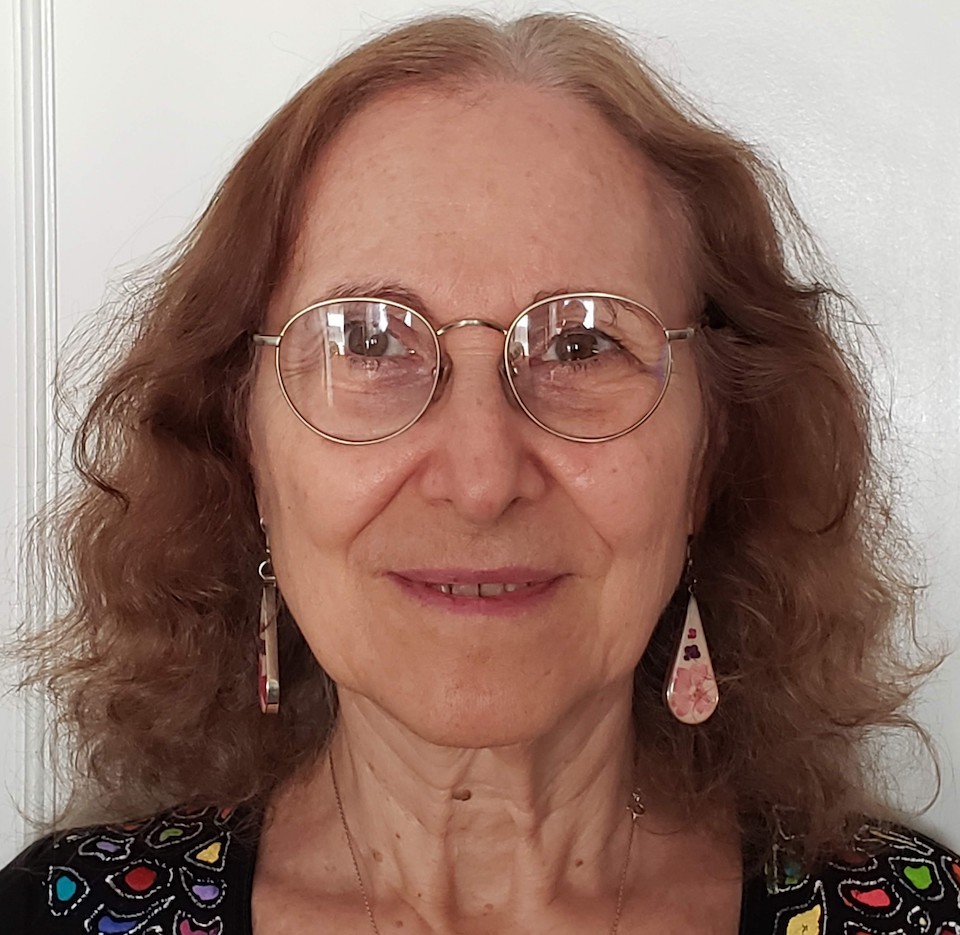
Alicia Dickenstein is a Professor at the University of Buenos Aires and a Senior Researcher at CONICET, the National Research Council of Argentina. She is a Member of the National Academy of Exact and Natural Sciences and of the National Academy of Sciences of Argentina. She was Vice-President of the International Mathematical Union. She is an AMS Fellow and a SIAM Fellow. She holds Honorary Doctorates from UNS, Argentina, and KTH, Sweden. She received the 2015 TWAS Prize in Mathematics and a 2021 L’Oréal-UNESCO Award “For Women in Science”.
Prof. Mouhamed Moustapha Fall
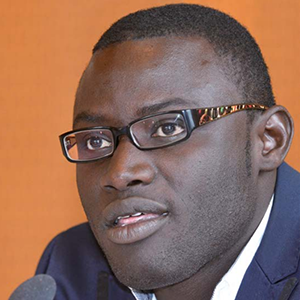
Professor Mouhamed Moustapha Fall is currently the President of the AIMS Senegal Centre and an Endowed Chair of Mathematics and its Applications of the institute.
Under his leadership, the AIMS Senegal Research Centre has authored several research papers, published in internationally recognized peer-reviewed journals, and has developed several research partnerships with nationally and internationally renowned institutions.
After following the Diploma program at the International Center for Theoretical physics (ICTP) in 2005, he defended his PhD in 2009 at the Institute for Advanced Studies (ISAS/SISSA) in Italy. He then became an assistant lecturer at the Université Catholique de Louvain-La-Neuve in Belgium from 2009-2010, after which he became a Humboldt Postdoctoral Research Fellow at the Goethe-Universität Frankfurt, followed by a postdoctoral position at the Università Degli Studi di Milano-Bicocca. Since 2013, he has been the Endowed Chair of Mathematics and its Applications of AIMS-Senegal and become a full Professor at AIMS in 2018.
Moustapha has served as:
- Member of the Scientific council of CIRM (Centre International de Rencontres Mathématiques), Marseille.
- Member of the EMS-CDC (European Mathematical Society-Committee of Developing Countries).
- Member of the Scientific board of the International Basic Science programme of UNESCO
- Member of the the Executive Bureau of International Mathematical Union (IMU).
His research areas are Differential Geometry and Partial Differential Equations, with a particular focus on Isoperimetric and functional inequalities, regularity theory, nonlocal equations, and overdetermined equations. Other research interests include Mathematical modelling for socio-economic, ecologic systems, and Agent-Based modelling. His research has earned him international recognition. In 2018, Moustapha was an invited speaker at the 2018 International Congress of Mathematicians (ICM) in Rio.
Prof. Mourad Bellassoued
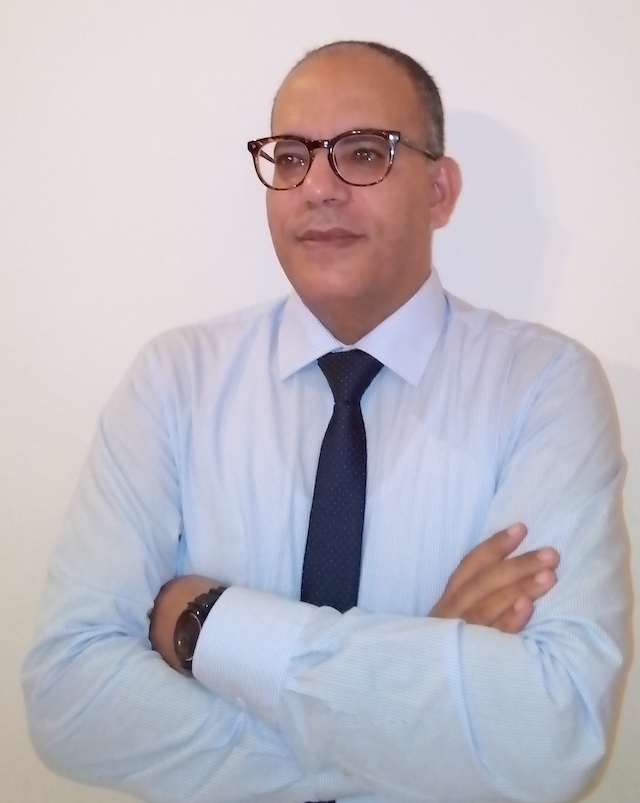
I completed my PhD dissertation at the University Paris 11 (Orsay) in France, under the supervision by Professor Luc Robbiano in 2000. Since 2004, I have been Full Professor at University of Carthage, Faculty of Sciences of Bizerte, Tunisia and since 2009 I have been Full Professor at University of Carthage, Tunisia. Since 2016, I have been Full Professor at University of Tunis El Manar and I am the head of the laboratory LAMSIN “Laboratoire de Modélisation Mathématique et Numérique dans les Sciences de l’Ingénieur”.
For about 20 years, I have also been involved in different research projects on inverse problems for different types of partial differential systems and especially when the classical geometrical observability condition is violated. From a theoretical point of view, I have offered contributions on different topics: inverse problems, relationships between control theory and inverse problem, and more recently the development of the Dirichlet-to-Neumann approach in mathematical physics (this subject is strongly connected to electrical impedance tomography: the medium is stimulated on the outer surface and measurement are recorded on the surface too).
Prof. Pascal Van Hentenryck
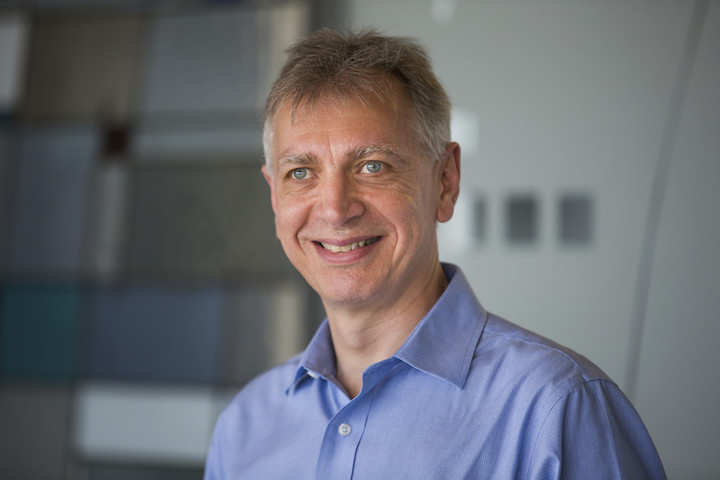
Pascal Van Hentenryck is the A. Russell Chandler III Chair and Professor in the H. Milton Stewart School of Industrial and Systems Engineering at the Georgia Institute of Technology and the Associate Chair for Innovation and Entrepreneurship. He is the director of the NSF AI Institute for Advances in Optimization. Several of his optimization systems have been in commercial use for more than 20 years for solving logistics, supply-chains, and manufacturing applications. His current research focuses on machine learning, optimization, and privacy with applications in energy, mobility, supply chains, and manufacturing.
Van Hentenryck is a Fellow of the Association for the Advancement of Artificial Intelligence (AAAI) and a fellow of the Institute for Operations Research and Management Science (INFORMS). He holds two honorary doctoral degrees and is the recipient of an NSF Young Investigator Award, the 2006 ACP Award for Research Excellence in Constraint Programming, the 2002 ICS INFORMS Award for Research Excellence at the Intersection of Computer Science and Operations Research, the IFORS Distinguished Lecturer Award, the Philip J. Bray Award for teaching excellence at Brown University, and the Teaching Excellence Award for Online Teaching at Georgia Tech. Van Hentenryck has received numerous best paper awards in multiple fields.
